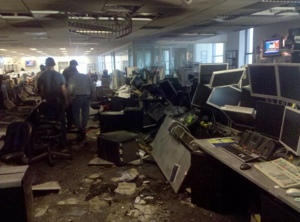The Senate worked late into the night to socialize one-sixth of the U.S. economy: the entire healthcare sector. No matter how you look at it, it is a no-win for small businesses. If you are satisfied with your current medical insurance, but the government deems your benefits “generous”, you will be hit with punitive taxes. If you are over age 65 and are covered by Medicare, your benefits may be adjusted by the government to rationalize the system.
And all of us will be paying for the cost-shifting into enlarged state Medicaid programs and pork-barrel politics played to buy the votes of senators reluctant to support this bill. Even worse, our political leaders had the moxie to demonize the insurance industry, even as this “reform” enriches the industry by delivering captive policyholders to them with no offsetting pressure on cost containment. We are still left with a patchwork of 50 state insurance systems and no national economies of scale. Small businesses will still be overpaying for insurance, while large corporations can escape the most onerous burdens with self-insurance or other captive schemes. Let’s see if the House shows any political courage after the New Year, but the signs are ominous.








